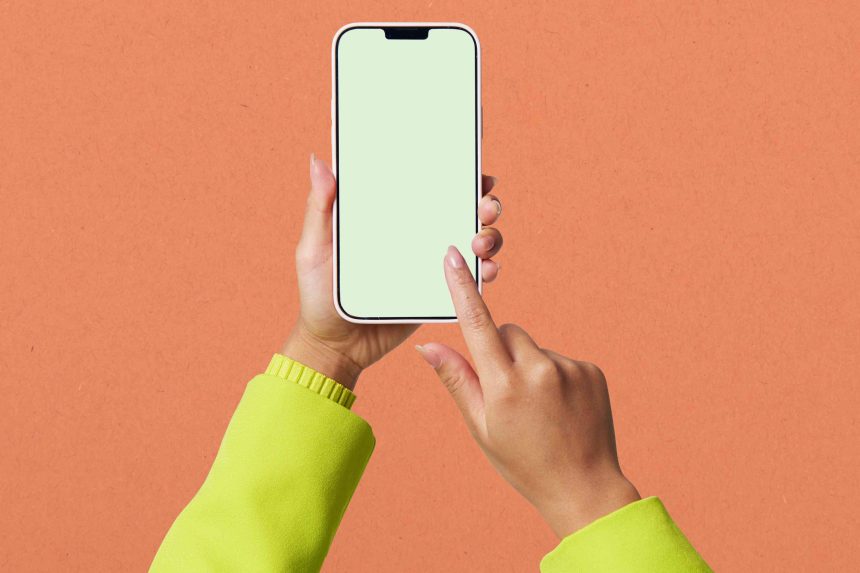‘Tis the season for New Year’s resolutions! Although any time of year is excellent for re-examining your habits and eliminating any that aren’t serving you, the symbolic shift into a new year can be extra motivating. It’s a perfect opportunity to reflect on the past year and identify any habits that might be getting in the way of your 2025 goals.
Below, find seven common habits you might consider putting on the chopping block this year, plus advice from mental health clinicians on what you can do instead to refresh your routines.
- Kiana Shelton, LCSW, is a therapist and licensed clinical social worker at Mindpath Health
- Dr. Zishan Khan, MD, is a psychiatrist at Mindpath Health
Scrolling Before Bed
“Endless scrolling often overstimulates the mind, making it harder to wind down,” says Dr. Zishan Khan, MD. Instead, he recommends creating a “digital sunset”: “Stop using screens 30 to 60 minutes before bed and engage in calming activities like reading, journaling, or meditating.” Better yet, take your digital sunset to the next level by making your bedroom a phone-free zone. Invest in a traditional alarm clock instead of using your phone, and have some cozy hobbies lined up to help transition your brain from the day’s activities to resting.
Neglecting Physical Activity
For many of us, between the responsibilities of work and home life, maintaining a regular workout schedule is just not in the cards. But, this doesn’t mean sedentary habits can’t be broken. “Sedentary habits contribute to stress, poor mood, and physical health issues,” Dr. Khan says. When we let go of the idea that physical activity only “counts” if it’s intense, opportunities to incorporate more movement into our lives become clearer. Dr. Khan suggests taking short walks or doing a quick workout during breaks at work or trying something gentle, like yoga.
Skipping Breaks at Work
Whether you work in person or from home, try to shake your habit of working through your breaks this year. “Rest does not have to be earned, and there is no reward for skipping your breaks,” says Kiana Shelton, LCSW. Even if you only have five minutes to step away, take all of that time to refresh your brain and body. Shelton suggests stretching, getting a drink of water, or stepping outside.
Making Impulse Purchases
Avoiding impulse purchases will not only boost your account balance, but also your mental health. “Impulse buying can lead to financial stress and clutter, both of which contribute to mental overwhelm,” Dr. Khan says. However, with so many opportunities to shop available to us constantly, cutting this habit is easier said than done. Dr. Khan suggests implementing a “24-hour rule”: “Wait a day before making non-essential purchases to evaluate if you truly need or want the item,” he says. Removing temptations to shop also helps curb impulse spending—delete shopping apps from your phone, unfollow influencers who make you feel like shopping, and unsubscribe from marketing emails and texts as soon as they come in.
Not Setting Boundaries
Whether we’re talking work, relationships, or personal projects and hobbies, taking on more than we can handle is a slippery slope. “Overcommitting or saying ‘yes’ too often can lead to burnout, resentment, and strained relationships,” Dr. Khan says. The beginning of the year is a perfect time to reflect on your commitments and evaluate which ones add to your life, and which ones aren’t serving you. Then, “practice assertive communication and prioritize tasks or relationships that align with your goals and values,” Dr. Khan suggests.
Excessive Screen Time or “Doomscrolling”
As research continues to emerge about the effects of excessive screen time, let 2025 be the year that you address your scrolling habits. “Prolonged screen exposure not only contributes to eye strain and mental fatigue, but also leads to one being disconnected from the present moment,” Dr. Khan explains. This can be a tough habit to break, though—our phones and apps are literally designed to keep us hooked for as long as possible.
So, take a gradual approach. Dr. Khan recommends the “20-20-20 rule” to mitigate eye strain, in which you look away from your screen every 20 minutes for 20 seconds at an object 20 feet away. He also suggests scheduling dedicated screen-free time for other hobbies. Try making a “dopamine menu” to reference so you can easily swap scrolling for a similarly gratifying activity.
Neglecting Self-Care
“When we neglect our self-care, we make others unintentional robbers of our joy,” Shelton says. “Pouring into yourself regularly will ensure that you can show up for others.” Self-care doesn’t have to mean doing a 12-step skincare routine each night or purchasing other wellness products if you don’t have the time or money. Shelton recommends spending just five minutes daily practicing mindfulness, journaling, or reflecting on positive moments from the day. You can also practice self-care by cooking more of your favorite foods, finding a form of physical activity that you truly enjoy, or adjusting your routines to make more time for hobbies or relaxation.
When setting out to break or change a habit, practicing self-compassion is key. In fact, some research suggests that unlearning a habit can take anywhere from 30 to 60 days. If you are struggling at first to eliminate or replace a habit, remember to be forgiving and make adjustments as needed to ease into your new routine.





